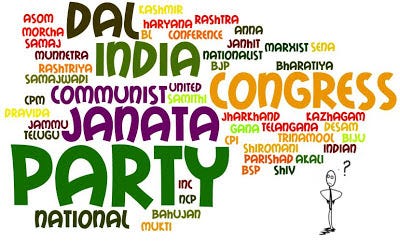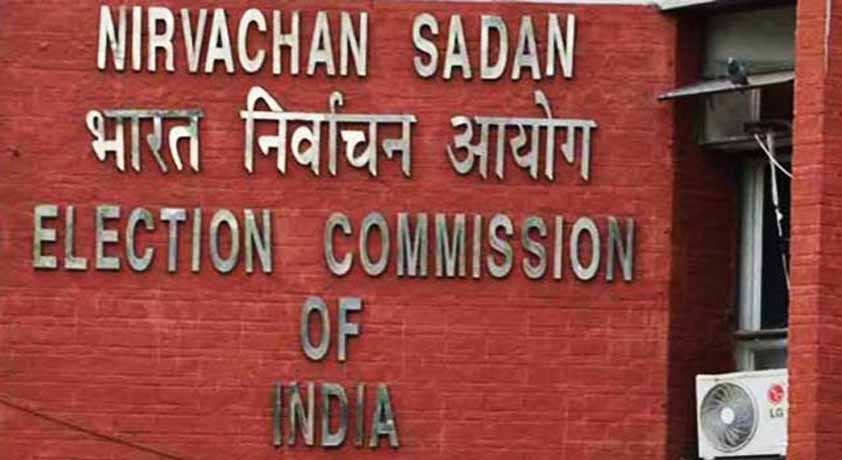The furore of the #MeToo movement, unsurprisingly, has hit the shores of political parties with several allegations of sexual harassment against prominent politicians. MJ Akbar, the Minister of State for External Affairs, has been accused of sexual harassment by journalists. Sonal Kellog, a journalist, has made an accusation of sexual harassment against a UPA-1 minister. NSUI national president Fairoz Khan has stepped down from his post following charges of sexual harassment.


What IS a Political Party?
Recently, the Centre for Accountability and Systematic Change (CASC) sent a legal notice to Maneka Gandhi, the Union Minister of Women and Child Development, requesting for political parties to be penalised for failing to protect women as per the law.In the backdrop of these allegations and the accounts of survivors, Rahul Gandhi came out in support of #MeToo.
While statements such as these are positive and encouraging, it remains to be seen if political parties are bound by the Sexual Harassment at the Workplace (Prevention, Prohibition and Redressal) Act, 2013 in requirements to set-up an Internal Complaints Committee to deal with sexual harassment complaints.
Many political parties are registered under the Societies Registration Act, 1880 and many are voluntary associations like the Indian National Congress.


To be registered as a recognised political party, any association of people or body of individuals (with a minimum membership of 100 people) have to apply to the Election Commission within 30 days of forming the party. The application has to be accompanied by a copy of a memorandum of rules and regulations of the association or body (they need not be called “memorandum of rules and regulations”). Thus, these associations are not mandated to have any legal status before applying to the Election Commission.
However, post acceptance of these applications by these associations, they are considered to be “recognised political parties” with certain privileges.
Political parties can contest in elections without the “recognised political party” status and in fact are required to to do so to gain recognition by the EC.
What Constitutes Workplace Harassment?
As per the Sexual Harassment at the Workplace (Prevention, Prohibition and Redressal) Act, 2013 a ‘workplace’ is defined extremely broadly to include all types of workplaces, both formal and informal. The definition includes all government, as well as private organisations. It also includes any place where the employee visits during the course of employment, that is, during the course of executing or conducting any tasks related to their employment. By this definition, a team lunch at a restaurant can also be a ‘workplace’ and the employer is bound to protect their employees from sexual harassment there.
The definition of ‘employer’ is also broad as per the law. It includes government units, establishments, departments, enterprises etc. It includes any person or board responsible for the management, supervision and control of the workplace.
The employers are duty-bound to protect their employees from sexual harassment; by carrying out certain duties including the constitution of an ICC. An ICC is to be set-up in any workplace where there are more than 10 employees. Therefore, as long as a political party has a certain number of employees at a workplace, they are bound by the laws on sexual harassment at the workplace and are required to have such a committee. They must abide by all other duties of the employer in each local unit of their party that can be called a workplace. They are even supposed to ensure that they redress any complaints of any party worker while travelling etc.
Election Commission’s Role
A woman can be a victim of sexual harassment even if she is working from home, or is a consultant, or working as a volunteer or even if she is a visitor of the party’s work space. In all these instances, a woman should be able to file a case with the Internal Complaints Committee of a political party. However, even the prominent political parties seem to have not followed these guidelines.
Instead of women employees and members of political parties struggling for a remedy in each case, perhaps a systemic solution is needed.
The rules and regulation of the memorandum that are submitted to the Election Commission for recognition as political party are required to contain a provision that the association or body shall bear true faith and allegiance to the constitution of India as established by law, and to the principles of socialism, secularism and democracy and would uphold the sovereignty, unity and integrity of India.


The Election Commission could step in and mandate a political party having clauses relating to the constitution of a mandatory Internal Complaints Committee to deal with instances of sexual harassment, to ensure safer spaces for women in the political sphere.
This article was originally published on the Quint.


